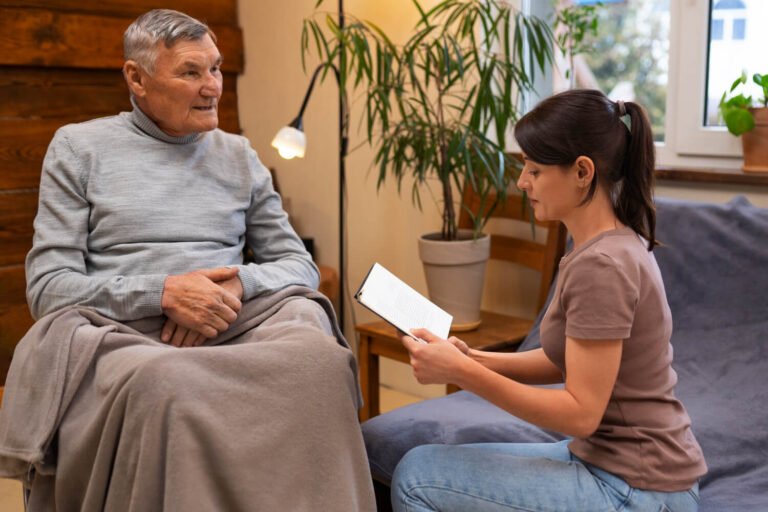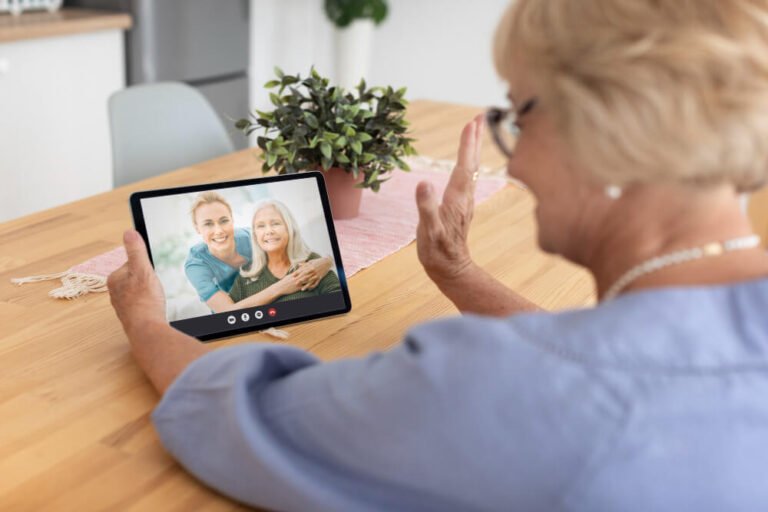Know what happens to stress when you interview the elderly?

In 2025, almost 63 million Americans are aged 65 and over. That represents about 18.6% of the total U.S. population. Think of all the knowledge, experience and wisdom those seniors possess!
Those numbers are growing at a historical rate. In fact, some data projects 1 in 5 Americans to be 65 years old or older by 2030.
How to Tap Into the Wisdom of the Elderly
As I mentioned in my previous post about challenging common stereotypes of older people, the month of May is Older Americans Month. It’s a beautiful reminder to look beyond stereotypes and see the wisdom, humor and strength in our aging loved ones.
For family caregivers, especially those feeling overwhelmed or disconnected from those they care for, one simple practice can make a big difference: interviewing the elderly people they care for. Asking older ones questions, not just about their care needs, but about their life stories, can ease stress, deepen relationships and give us a new sense of purpose.
Let’s explore how getting to know your loved one on a deeper level can strengthen your bond and lighten the caregiving load.
Why Conversations Matter in Family Caregiving
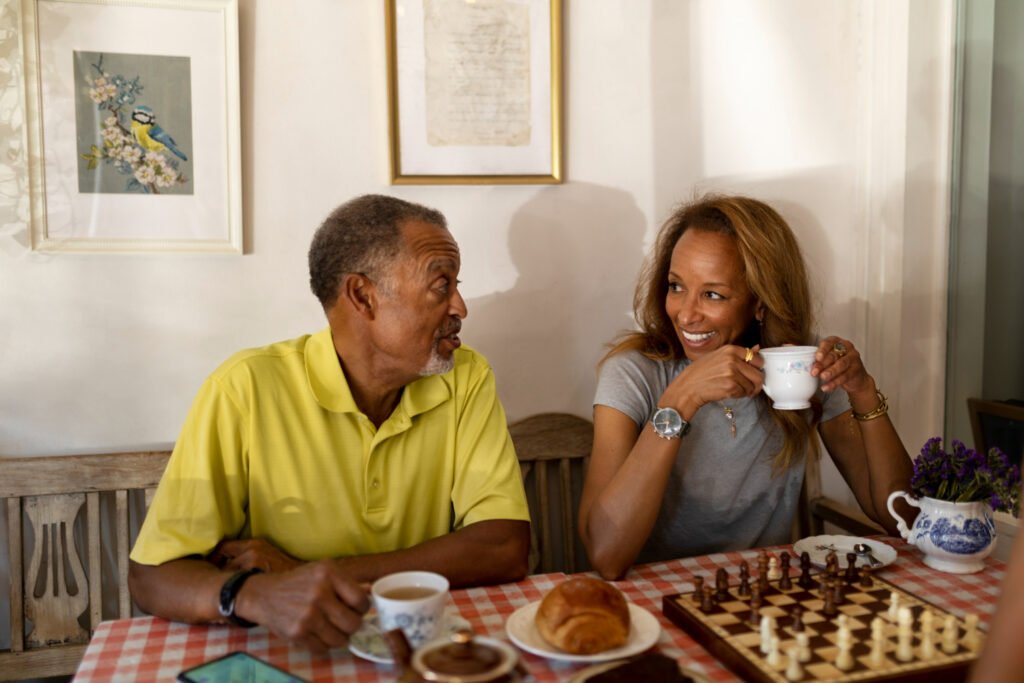
When we slow down and really listen, something in our relationship shifts. Asking thoughtful questions can:
- Build trust and closeness.
- Give your loved one a sense of dignity and value.
- Reduce feelings of isolation for both of you.
- Make caregiving feel more personal and less like a chore.
These meaningful moments help caregivers reconnect to their “why” of caregiving. That can be a powerful stress reliever.
10 Questions to Ask an Elderly Loved One
Here are ten questions you can use to spark meaningful conversations. I’ve paired each one with a short explanation of how it helps reduce stress and build connection.
1. “What was your favorite memory as a child?“
This helps shift focus from current health and aging issues to joyful memories. It opens the door to laughter and lightness, which can reduce tension.
2. “Who was someone you looked up to growing up?“
This question helps you understand their values and who shaped them. Knowing this can bring more empathy to your caregiving.
3. “What’s the most important lesson life has taught you?“
Wisdom-sharing empowers older adults and reminds them that they still have much to offer. It can also give caregivers fresh perspective.
4. “How did you meet your spouse or best friend?“
These stories often come with warmth and emotion. They bring a human side to caregiving and can be a source of comfort during hard days.
5. “What are you most proud of?“
Focusing on their accomplishments can boost your loved one’s self-esteem. It also helps caregivers appreciate the richness of the life they’re supporting.
6. “What was your first job, and what did you learn from it?“
This question offers insight into work ethic and resilience. It helps caregivers connect with the practical wisdom of their loved ones.
7. “What traditions did your family have growing up?“
Sharing traditions can revive family culture and spark ideas for connecting across generations.
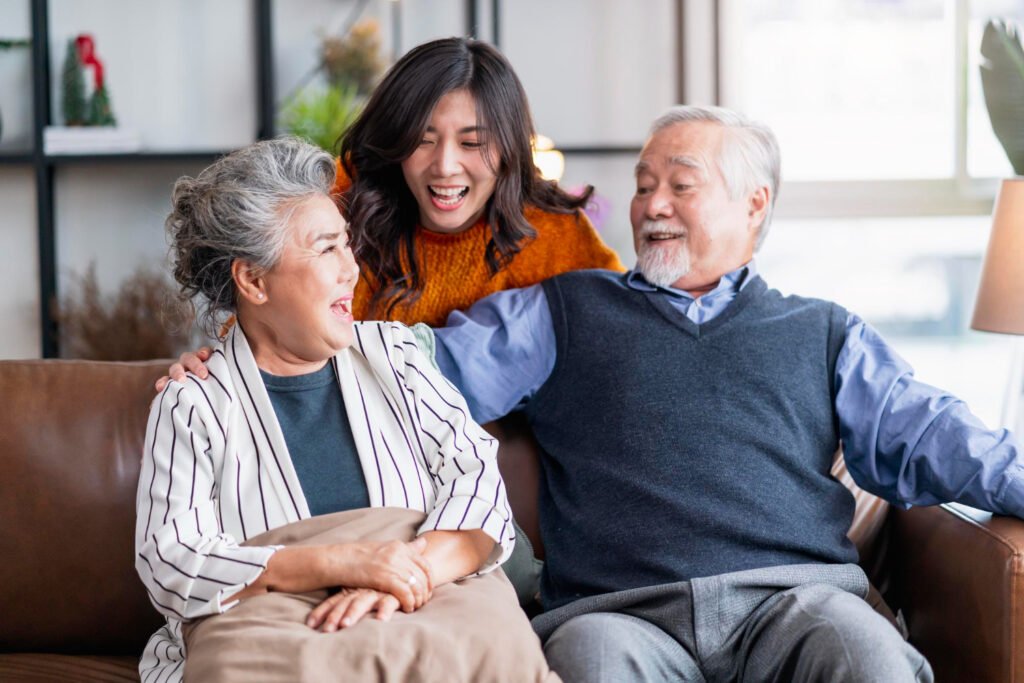
8. “What advice would you give your younger self?“
This invites vulnerability and reflection. It often leads to gentle, heartfelt conversations that can soothe stress.
9. “What was your favorite decade and why?“
It lightens the mood and invites fun stories. It’s also a great way to explore history through a personal lens.
If they’re a music lover, you could also make a playlist of songs from their favorite era. That can be a fun way to celebrate older people.
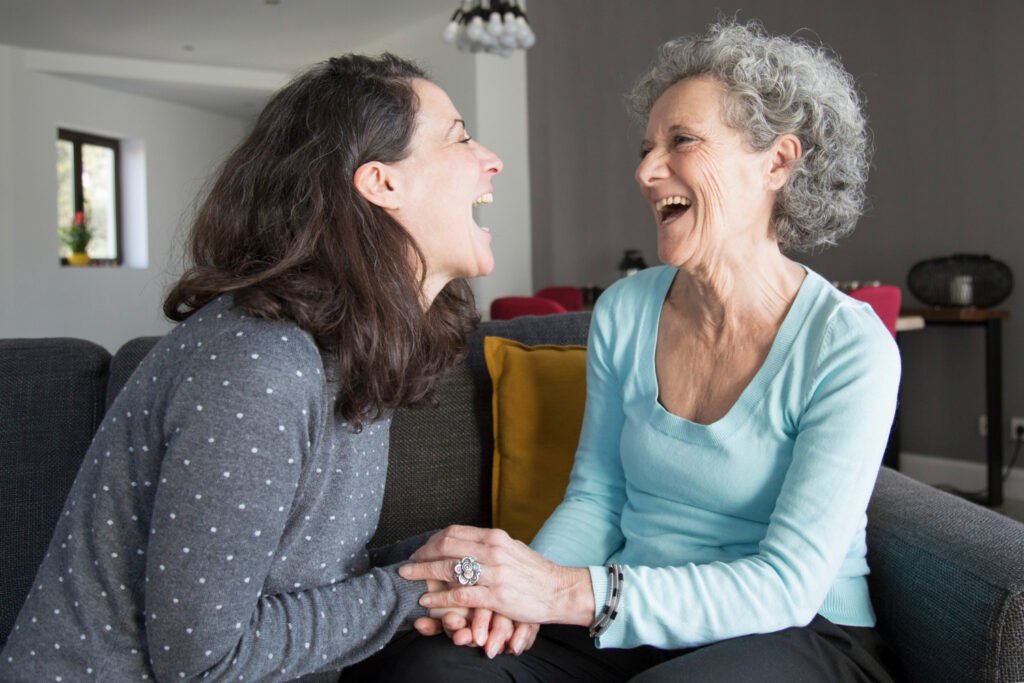
10. “Is there something you’ve always wanted to talk about but never had the chance?”
This allows space for sharing deeper truths and healing. It shows respect and can lift emotional weight for both of you.
How Knowledge Sharing Eases Caregiver Burnout
Learning more about your loved one’s past helps you see them as a whole person, not just someone in need of help. This shift in mindset can:
- Make daily caregiving tasks feel more meaningful.
- Remind you of the love that started your caregiving journey.
- Reduce guilt by reinforcing that you’re making a difference.
Help you stay emotionally connected, even on especially challenging days.
Make interviews a habit, not a one-time talk.
Try setting aside time each week for these conversations. It could be during a quiet morning, over lunch or before bed. You can even record them — with permission — or write them down in a journal.
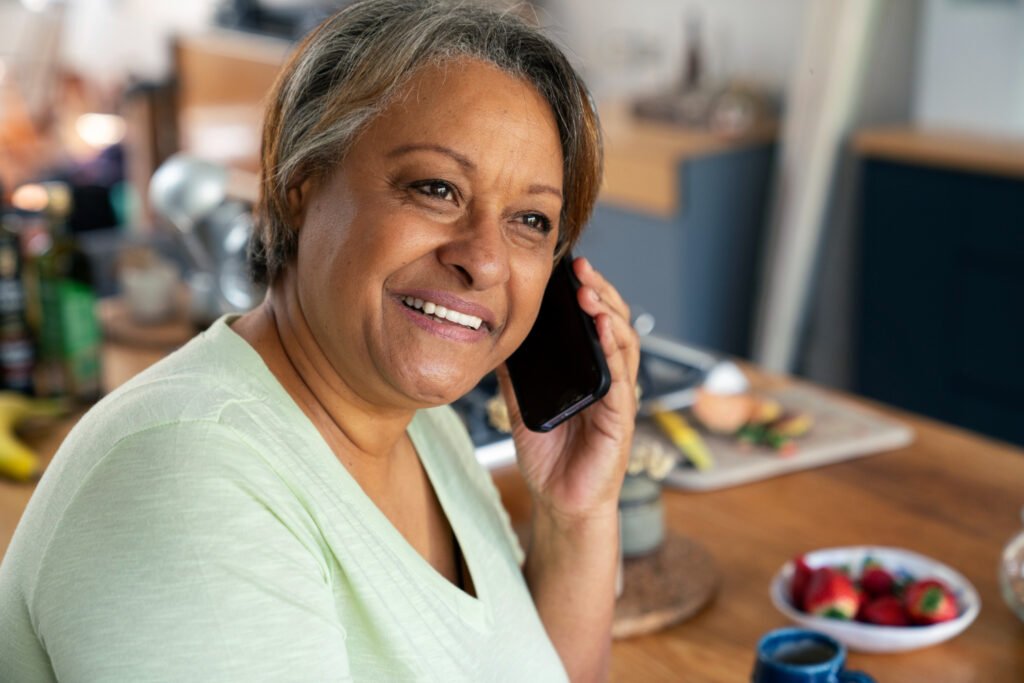
Here’s how to keep it simple:
- Don’t pressure them to answer everything at once.
- Let the conversation flow naturally.
- Be patient if they forget details or go off topic, that’s all part of the fun.
These moments can become cherished memories and lasting gifts, for both of you.
Small Questions, Big Impact
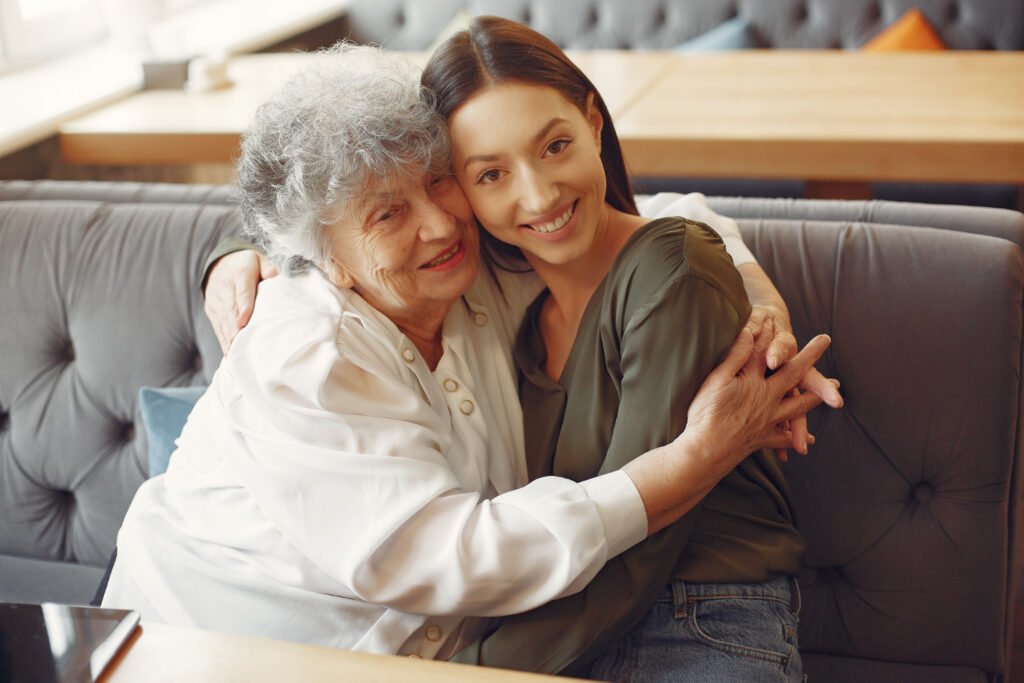
You don’t need to be a professional interviewer. Just bring your heart and a listening ear. Each story shared is a step closer to connection, peace and resilience.
Caregiving is hard, but you don’t have to do it alone. You’re building something beautiful, one question at a time.
Interviewing Older Ones FAQ
1. How do I start a conversation if my loved one is reluctant to talk?
Start with light, easy questions and be patient. Don’t be afraid to linger in the silence with them. Sometimes all they need is a little time to warm up.
2. What if my loved one has memory loss?
Ask questions from earlier in life. Long-term memories are often easier to recall and still bring joy.
3. Should I write down their answers?
Yes. If you feel it would help. Journaling their stories helps preserve family history and can bring added meaning to your caregiving.
4. Can interviewing my loved one really reduce my stress as a caregiver?
Absolutely. Emotional connection can be one of the strongest buffers against caregiver burnout.
5. How often should I interview them?
As often as you want to. It’s about consistency, not perfection.

